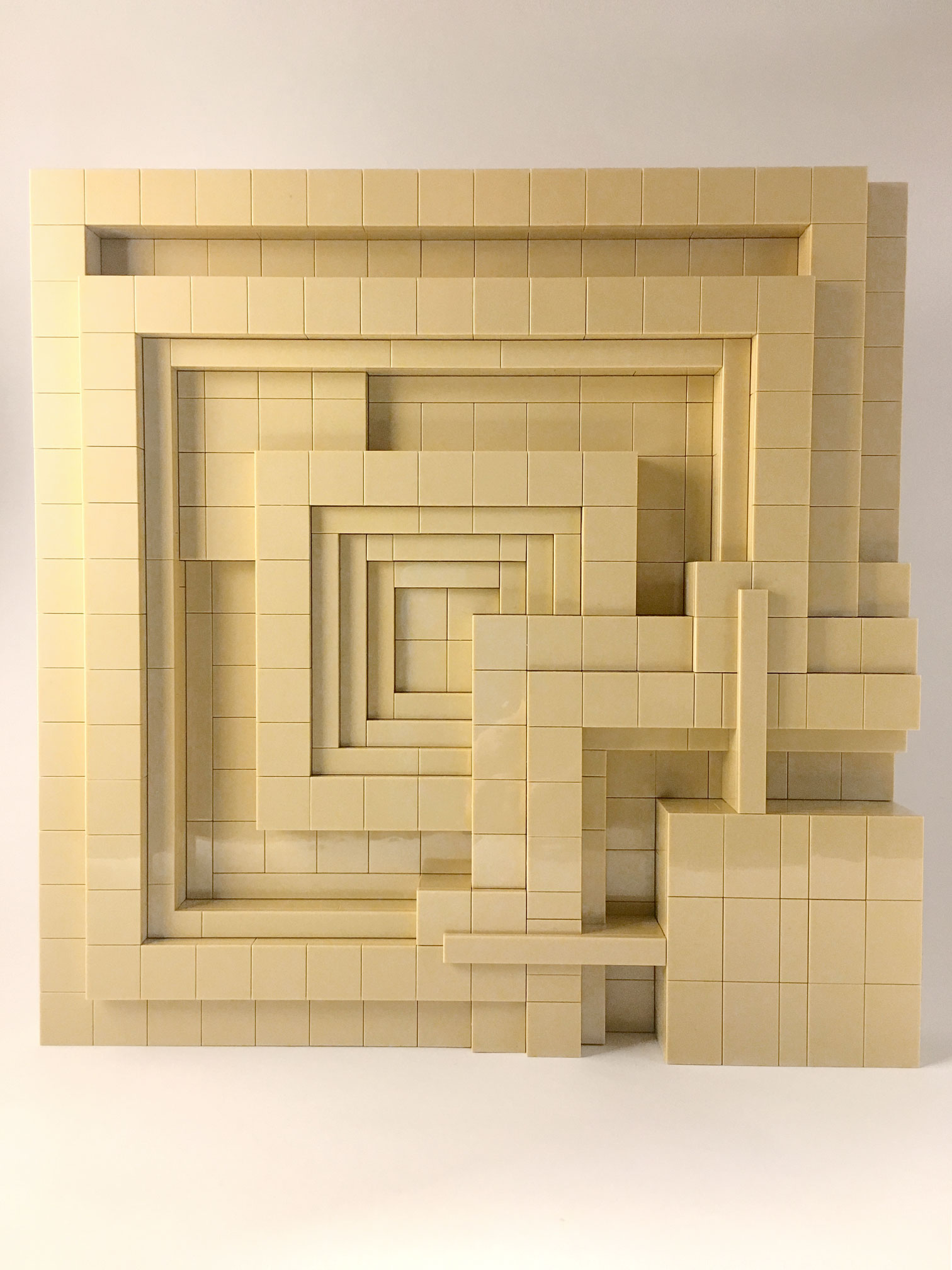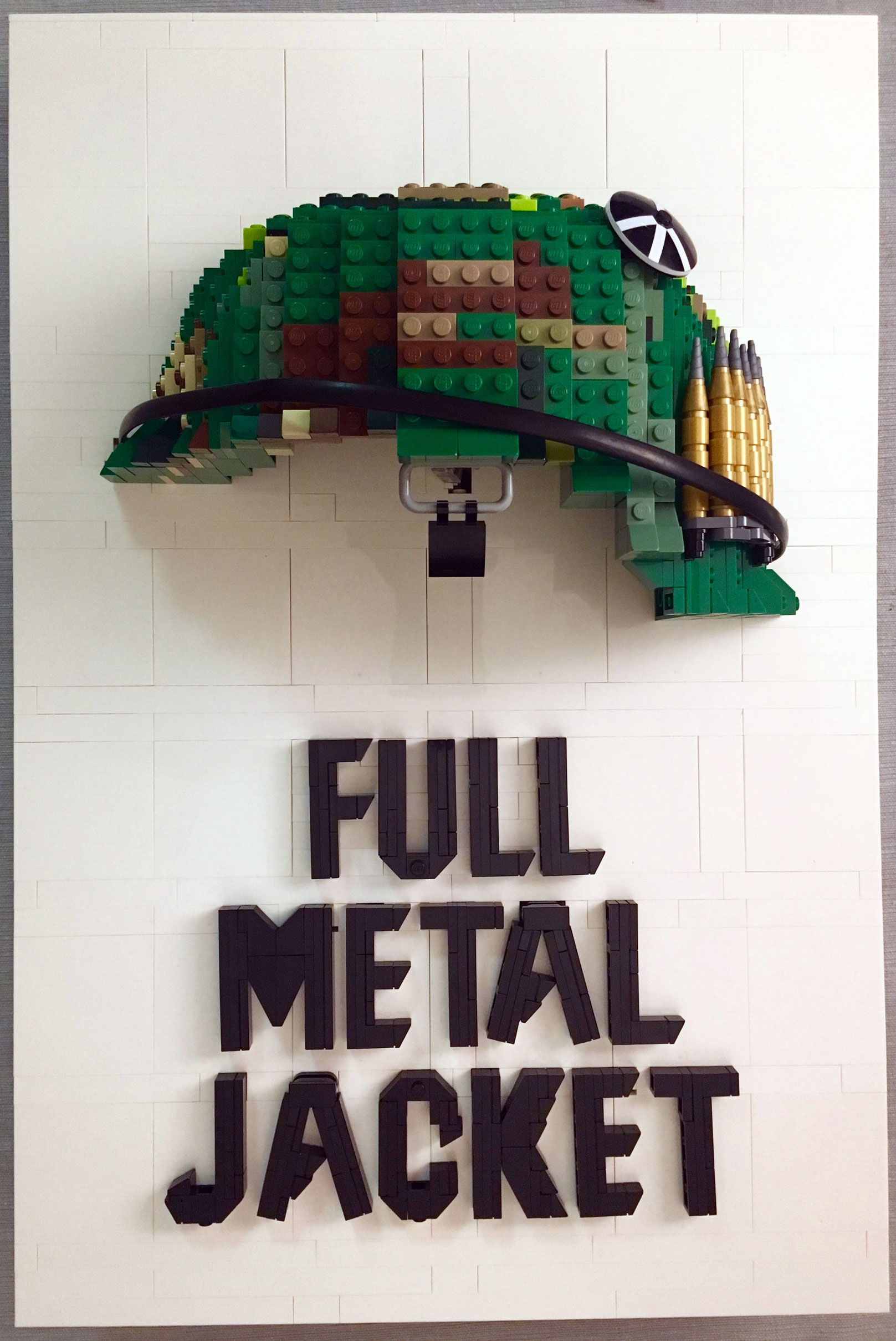Artificial? Of course it is.
A replicant of a tile from Frank Lloyd Wright’s Ennis House in LA — also known as Deckard’s apartment in Blade Runner.

Artificial? Of course it is.
A replicant of a tile from Frank Lloyd Wright’s Ennis House in LA — also known as Deckard’s apartment in Blade Runner.

I think it says something about the duality of man, sir.
Second Place – Movie Posters, BricksLA 2021

The first rule is I’m not supposed to talk about it.
Winner Pop Culture: Past Ten, Bricks by the Bay 2020
 I was flipping through suggested movies on Netflix for Wii when I came across an awful horror movie I hadn’t seen since a triple feature my dad and I went to when I was 13: the obtusely-titled Popcorn.
I was flipping through suggested movies on Netflix for Wii when I came across an awful horror movie I hadn’t seen since a triple feature my dad and I went to when I was 13: the obtusely-titled Popcorn.
For better or worse, my tastes have changed since then to appreciate this sort of lowbrow fare; details like the inspired closing theme and Crispin Glover’s dad Bruce in a cameo. Popcorn recalls a time before MST3K when watching bad movies for fun was still a fairly rare cultural event. The movie centers around a killer stalking through a horror movie triple-feature (making it a pretty good choice for the venue where I originally saw it, in hindsight) and both the story and the killer’s motives actually make a kind of sense.
Matter of fact, I’d enjoy the hell out of a B-grade horror fest like the one featured in the movie. Minus the killing, I mean.
Jen is still arguing with me over this scene in Blade Runner, and it’s got me thinking.
The love scene between Deckard and Rachael is a major turning point for the characters because it is what causes them to fall from grace (he said, making an easy allusion to Adam and Eve getting kicked out of the garden of Eden).
If memory serves, Adam and Eve’s punishment is that they will toil in the fields, endure painful labor, and so on. But given a gnostic interpretation of this scene, the punishment isn’t just that — their punishment is their awareness of these things. Adam and Eve become not the first humans, but rather the first people by becoming aware of their world, their daily struggles, and most importantly their mortality. Deckard and Rachael’s fall from grace is similar in their discovery that they were built, but not to last. By the end of the film, they have become self-aware replicants, whose burden is the awareness of their four-year lifespan, and their journey into an unknown fate is the same as mankind’s after the story of Adam and Eve.
That they incur God’s wrath by refusing to live in blissful ignorance is echoed in Rachael’s line when she comes to get answers from Deckard, who tells her to go back to Tyrell.
“He wouldn’t see me.”
Shunned by her creator, and banished from the only home she’s ever known.
More on this topic: When a robot says 0 she really means 1